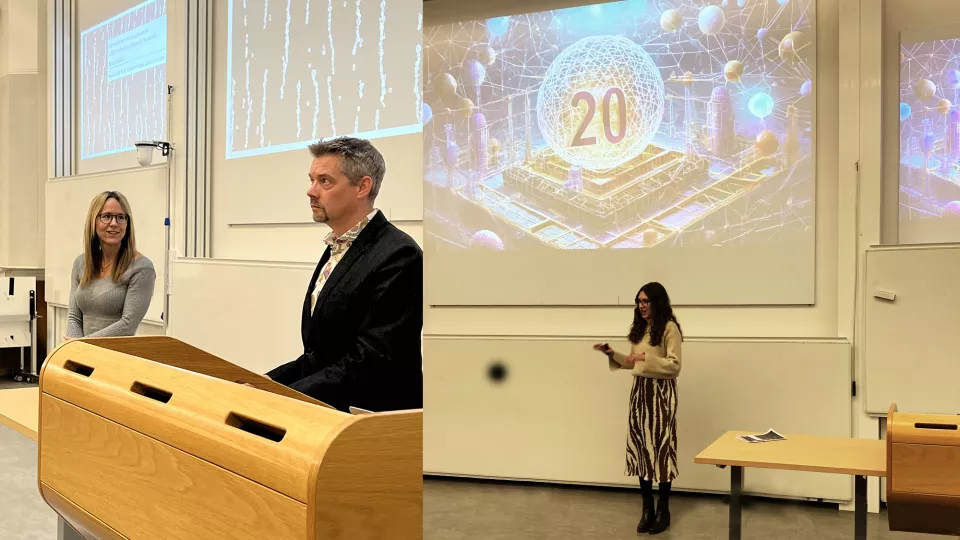“It felt very solemn and nice to celebrate 20 years. The students I talked to thought it was inspiring to hear alumni talk about their careers and the benefits of the programme. It is difficult to say what contexts they ended up in after graduation because it varies so much. But there is a large proportion, compared to other civil engineering programmes, who go on to research studies. A substantial share also ends up in high-tech companies, otherwise it is very scattered. We are looking forward to organising a 25th anniversary!” says Jonas Johansson who has led the programme since 2020.
Maria Messing agrees that it’s great to celebrate Nano 20 years:
“And to meet old ’nanos’ that you studied with! I also thought it was great fun to hear Lars Samuelson talk about how he and Knut Deppert created the nano programme and made sure it moved so fast and became so good. I was very happy to see that a whole bunch of the current students – not just alumni – were celebrating!”
AI and energy systems
“Some parts of the programme are the same as when it started twenty years ago – but it has evolved a lot, and continues to do so. For example, we have recently introduced optional courses in AI and this autumn we will launch a new specialisation in energy systems.
Engineering nanoscience is a programme that is unique in Sweden. It is the only MSc programme with nanoscience as a consistent theme throughout all five years. Our students help to blur the boundaries between traditional areas of knowledge such as biology, physics, chemistry, materials science and electronics. They become MSc engineers with cutting-edge skills, gained through their specialisation, and interdisciplinary expertise.
Because they are trained to work in multiple fields, they become skilled problem solvers who are good at communicating with experts in a wide range of disciplines,” says Jonas Johansson.
Always something new to learn
Marina Peltonen is a fifth-year student in Engineering Nanoscience:
“The first three years were varied and intense, but also provided a fundamental basic understanding of nanotechnology. It was like entering a world of unfamiliar terms and complex concepts where you didn't necessarily feel completely at home. But over time – and especially through specialisation – this experience changes dramatically. By specialising in specific areas of nanotechnology, you gain a deeper understanding and new perspectives on the subject.
During the specialisation, you can choose the type of nanoengineer you want to become. You are free to combine different courses to form your unique competence profile. Nanoscience as a subject is evolving and the continuous emergence of new discoveries every day means there is always something new to learn.
Nanotechnology is no longer just a buzzword in a science fiction film. It is a reality that redefines the limits of what is possible in science and technology.”


